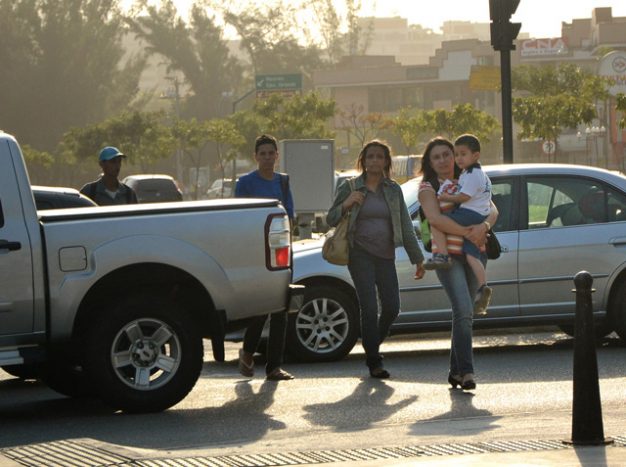
Children are dying needlessly on the roads – let’s work together to end these tragedies
Road traffic is the leading killer of children and young people worldwide – a sobering fact that will be at the forefront of a major United Nations event starting today.
There are almost 1.3 million preventable deaths and an estimated 50 million injuries as a result of road traffic incidents every year.
These numbers, says the UN, need to be cut drastically and quickly, and so this UN General Assembly on Improving Global Road Safety, from June 30 to July 1, is the latest part of a major strategy to save lives while also recognising the need to protect the environment.
The UN and its various organisations, along with the World Health Organization, launched the Global Plan for the Decade of Action for Road Safety 2021-2030, which wants to halve road traffic fatalities and injuries by 2030.
‘Governments must take a new path’
But it goes much further, calling on governments and all stakeholders ‘to take a new path’, one that not only saves lives and prevents injuries but also positively impacts on child health, the environment, poverty, equality, innovation and transport, and by doing so cutting the social and economic toll of these needless tragedies.
It is expected that a political declaration, which has already been agreed by consensus through intergovernmental negotiations, will be adopted by the UN Assembly this morning (30 June). It’s a vision on the future of mobility and one that promotes health and well being and is good for the planet – and therefore good for us all.
Today’s opening segment features, President of the United Nations General Assembly Abdulla Shahid, United Nations Secretary-General António Guterres, the World Health Organization (WHO) and United Nations Secretary-General’s Special Envoy for Road Safety Jean Todt, and a plenary segment, featuring formal statements from Member States. The second day will have three multi-stakeholder panels, a continued plenary segment, and a closing segment.
Dr Tedros Adhanom Ghebreyesus is Director General of the World Health Organisation, the lead UN agency for road safety. He said: “Road safety affects everyone. We step from our homes every day onto roads that take us to our jobs, schools and to meet our vital daily needs. Yet our transport systems remain far too dangerous. No death should be acceptable on our roads.
“The future of mobility should promote health and well-being, protect the environment and benefit all. It will require transformative leadership from the highest levels of government to act on the Political Declaration to make that vision a reality.”
‘No death should be acceptable on the roads’
Road crashes result in more than 2 deaths every minute, with more than 90 per cent occurring in low- and middle-income countries. Crashes are the biggest killer of children and young people globally. More than 50 million people have died on the world’s roads since the invention of the automobile, more than the number of deaths in the First World War or in some of the worst global epidemics.
The UN global strategy also highlights that responsibility for road safety stretches far beyond health and transport. Urban planners and engineers must prioritise safety as a core value in all transport infrastructure while businesses can influence and contribute to strengthening road safety by applying safety-first principles to their entire value chains.
Countries and cities guided by the plan are seeing dramatic reductions in deaths. For example, the Colombian capital of Bogota halved deaths over 10 years through a set of integrated actions, including wide-ranging technical improvements and regulatory reforms that were driven by strong leadership.
The summit is due to start at 10:00 local time in New York, which is 16:00 Central European Time. You can follow proceedings here.




